The lost fishermen of India's Cyclone Ockhi
- Published
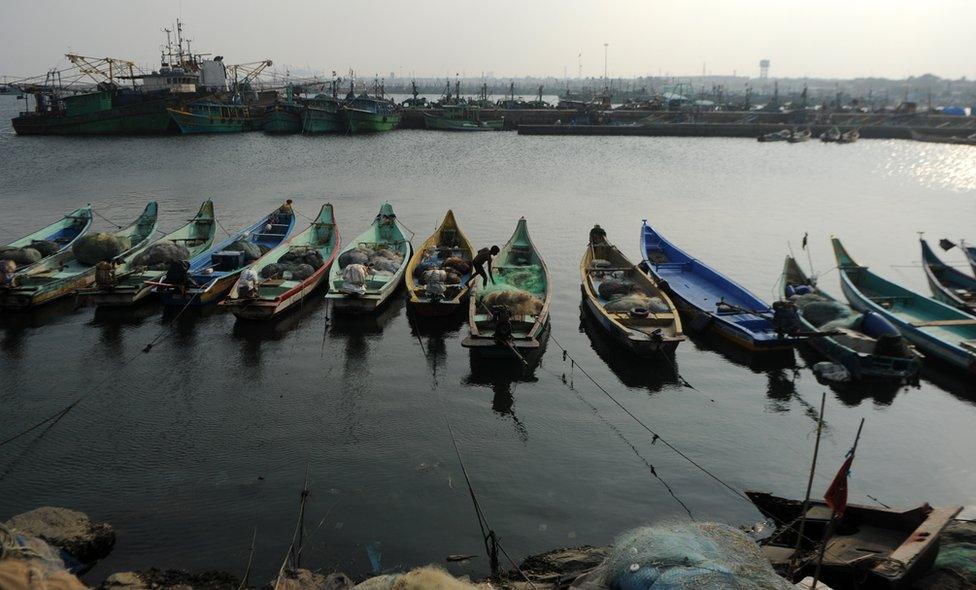
Chennai harbour. The storm struck off India's southern coast on 29 November
Nearly 100 Indian fishermen are still missing a week after a powerful storm struck the country's southern coast.
Ashraf Padanna has visited Poonthura, a fishing village in the state of Kerala that is thought to have lost 57 men at sea.
Every time seven-year-old Nimmy hears a sound from the sea, she runs to the shore. She expects to see her father's boat. Kumar Edward, 38, would go fishing every night and return the next morning with the day's catch.
He was last seen on the afternoon of 29 November when he went fishing with two other men, who are also missing.
Mr Edward's wife, Selin, and their four daughters, aged seven to one, have been waiting for him to return ever since.
Although Cyclone Ockhi affected several states on India's coast, Kerala was the worst hit.
The death toll in the state has gone up to 40 but officials admit it could rise.
India's navy, air force and coast guard have rescued 252 fishermen so far but, according to official estimates, some 90 men are still missing.
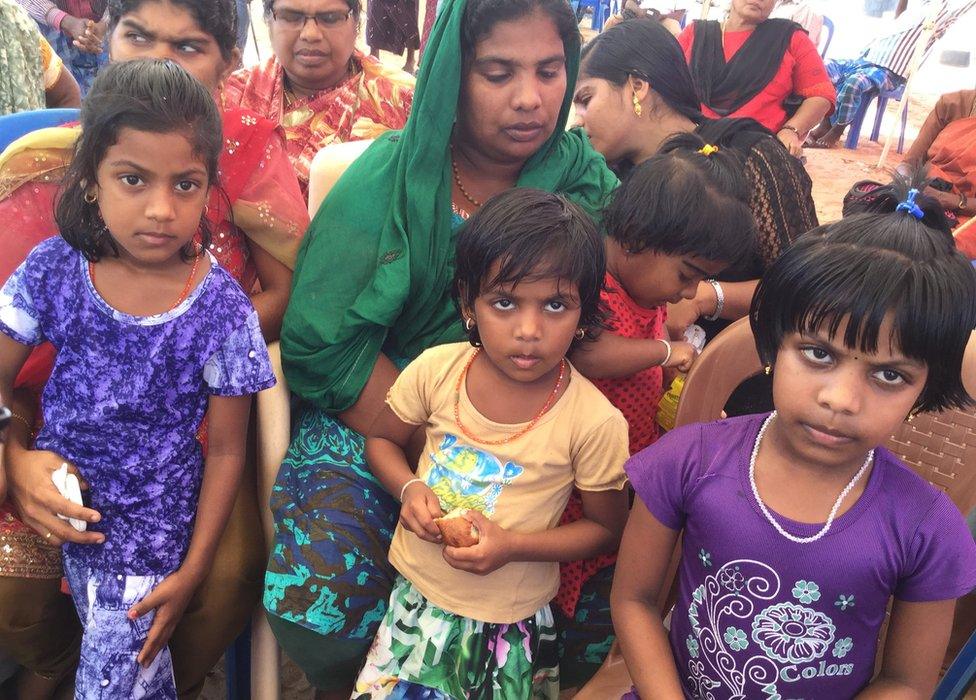
Mrs Edward and her daughters have been awaiting her husband's return in a tent on the shore
Mr Edward's daughters haven't gone to school for the past week and his wife is worried about her husband's paralysed father and ageing mother.
Locals say Mrs Edward refuses to allow his photograph to be put up alongside those of other missing fishermen.
"He has to look after these girls," she told the BBC. "He's the sole earner in the family. He should come back."
She and her daughters have camped out on the shore under a tent that has been put up by a local church.
The families of the 57 missing fishermen have gathered under the same tent, all of them waiting for someone to return. Their stories are depressingly similar.
Paniyadima Moses went out to sea on 30 November with 10 other men. The boat capsized and two men managed to reach the shore safely.
But the others, including Mr Moses, are still missing. His wife, Shalini, and her two children are hoping for good news.
Susie Vincent is waiting for her 15-year-old son grandson, Vineesh, the youngest of those missing. He supported his five-member family, including three younger siblings and a father who is seriously ill.
Roslin Francis is wondering if she can afford to send her children to school without help from her husband, who has been missing since 29 November.
Pushpa Rani is worried that she and her four children will be left homeless if her husband, the family's only earning member, doesn't return.
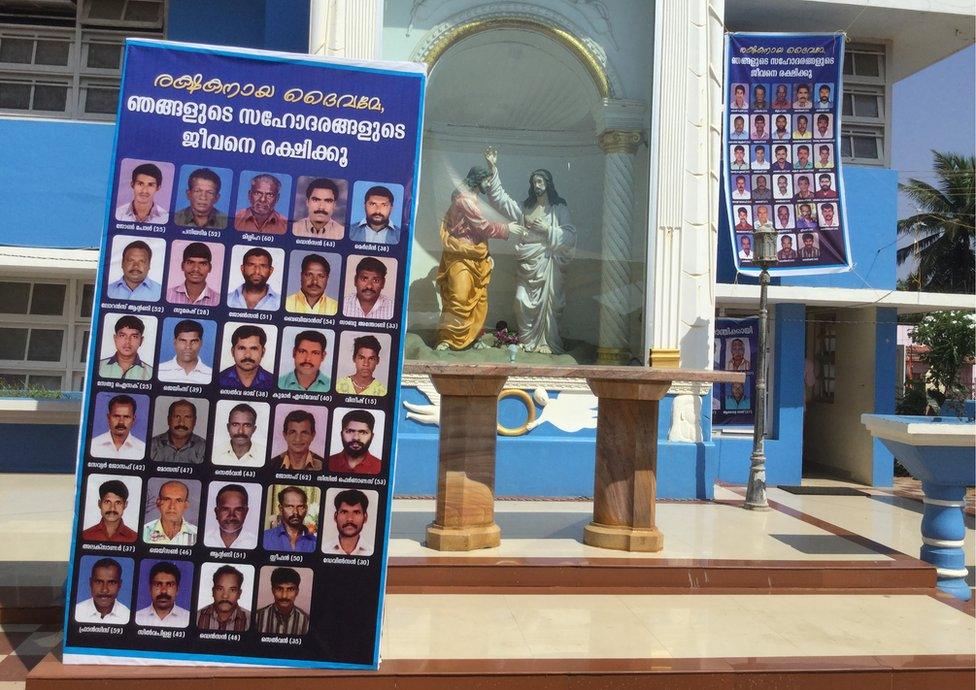
Some of the 57 fishermen still missing from the village of Poonthuru
Johnny Chennappan, the church secretary, said 61 of the 91 fishermen who went out in smaller boats have returned. Twenty nine are missing and only four bodies have been found.
Another 28 who had gone deep-sea fishing in bigger, mechanised vessels are also yet to return. But, according to Mr Chennappan, they have a better chance of survival because they have enough food and water stocked.
"They could have even reached shores of nearby countries," he said.
The men on smaller boats usually don't take a lot of food or water with them because they return early the next morning. But efforts to rescue them continue.
"The survival chances of small boats are low but larger vessels could have rescued some of the men, and they might have joined their crew," said E Chandrasekharan, Kerala's minister for disaster management.
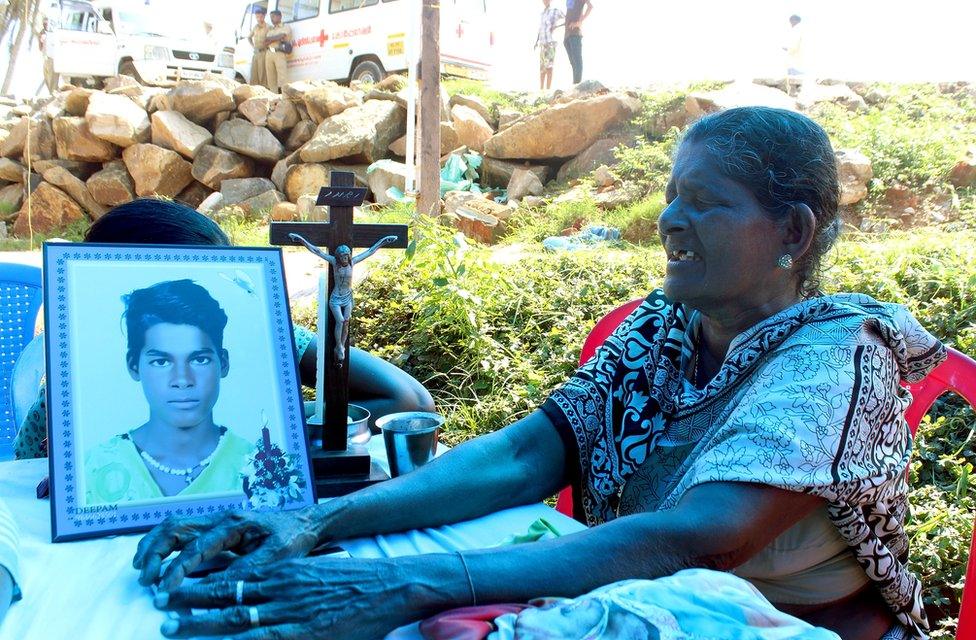
Susie Vincent's 15-year-old son grandson, Vineesh, is the youngest among those missing
More than 4,000 fishermen from the states of Tamil Nadu and Kerala sought refuge in harbours further up the coast, external when they realised they were facing a deadly storm.
They told the Indian Express newspaper that they were not expecting the cyclone, which brought back terrifying memories of the tsunami in 2004 that devastated coasts along the Indian Ocean.
Grieving families back in Kerala also allege the authorities did not issue early warnings or convey the extent of the danger.
Even after the storm hit, they say, the response was slow. After waiting for days, some fishermen defied warnings and went out to search for their friends and relatives.
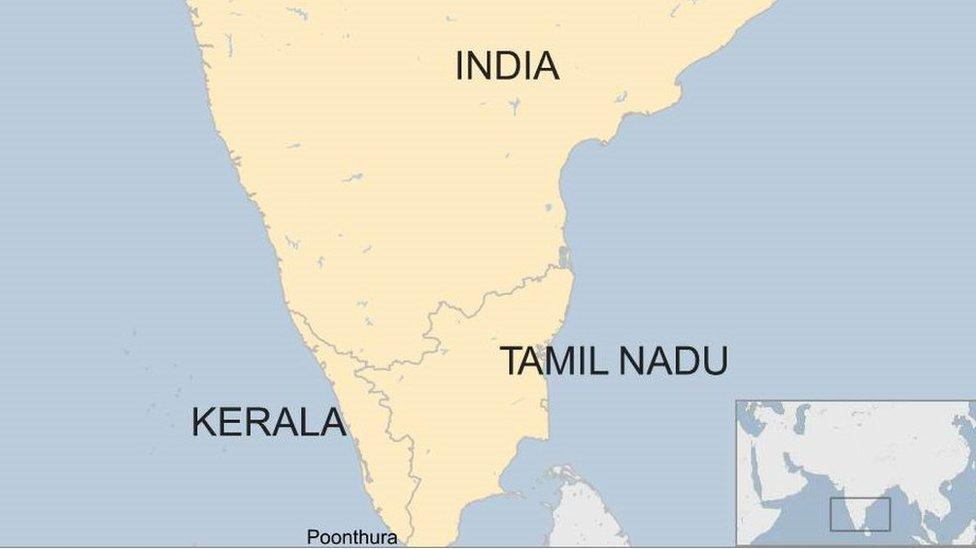
"If they had informed us early, we could have saved many lives," Mr Chennappan said. "People are losing hope as time passes."
The government has said it will compensate fishermen who have lost equipment, including boats and nets. They have also announced education scholarships and job training programmes for those whose fathers have died or are still missing.
Ashraf Padanna is a Kerala-based journalist.